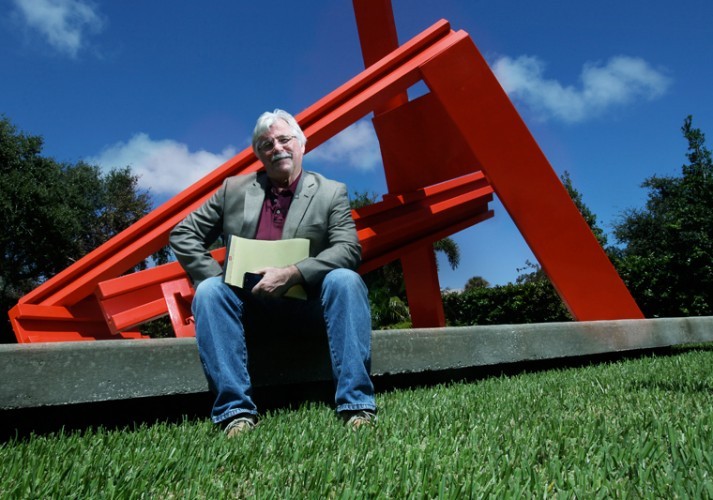VERO BEACH — A new twist in the dispute between Charlie Wilson and Vero Beach Museum of Art over a $25,000 fee came to light last Thursday when attorney Eric Granitur sent an email to Wilson’s lawyer threatening to sue Wilson for the amount of any fee he collects from the museum. Granitur represents Asset Research and Recovery, a limited liability company he and Wilson founded in 2010 along with partners Ace Capelen, John Malek, Paul Minich and Staffan Lundberg.
The company was created under Wilson’s leadership with funds provided by the other partners to make money by helping individuals and entities get government fee refunds, including impact fee refunds.
Wilson ran the company until August 2011 when he left after a disagreement with his partners and founded Impact Fee Consultants, a company with a similar focus. Operating as Impact fee Consultants, Wilson secured a $97,000 impact fee refund for the art museum in March. According to IFC’s contract with the museum, it would be paid 30 percent of that amount as a fee for services.
IFC had agreed to donate 15 percent of the fee to the museum as a charitable contribution, so it was due $24,917.99. After the refund was secured, museum Executive Director Lucinda H. Gedeon refused to honor the agreement for reasons she has declined to explain.
According to the agreement, the refund was supposed to go to an escrow account and then be disbursed to IFC and the museum in due proportion but the museum applied to the county for direct payment.
With Wilson and the museum both applying for the same $97,000, the county refused to pay either claimant until the dispute is resolved.
The stalemate dragged on until Sept. 5 when IFC filed suit in Circuit Court to collect its fee.
When the suit became public knowledge, Asset Research and Recovery suddenly decided to enforce a non-compete clause in the organizational documents Wilson and the other partners signed when the company was created.
That clause says, “All of the parties to this Agreement and all persons or entities in any way related to the parties to this Agreement shall not engage in any activity or business that would compete with the Business (ARR) or have a negative impact on the Business (ARR).”
Granitur’s e-mail to Wilson’s lawyer, Buck Vocelle, states, “This email is to put you on notice as Impact Fee Consultants (“IFC”) and Charlie’s attorney, that if IFC or Charlie should receive any monies from the legal action that you filed on IFC and Charlie’s behalf against the Vero Beach Museum of Art for commissions alleged to be owed to IFC and Charlie for the collection of impact fees, ARR intends to enforce the ARR Agreement and seek damages in the amount of any monies that IFC or Charlie receives from the Legal Action plus incurred attorney fees for the violation by IFC and Charlie of Section 7 of the ARR Agreement.
“Any monies that ARR receives (excluding attorney fees) from any enforcement action against IFC and Charlie relating to the Vero Beach Museum of Art shall be donated by ARR to the Vero Beach Museum of Art.”
Granitur did not respond to an email asking if there is any personal or professional connection between ARR and the museum.
In a phone conversation after the e-mail was sent, Wilson said it is an empty threat. “I spoke to my attorney about it and he said it is baseless.
There were other documents that came after that organizational document.”
Wilson still owns 20 percent of Asset Research and Recovery but is no longer involved in its operation.

